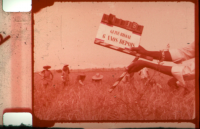agronomy
Articles tagged with agronomy
Tag Archive
- (For)getting
- África Ocidental
- African lands
- afro Americans
- Alqueva
- Amadou Diallo
- architecture
- arquitetura
- Artafrica
- As Cidades e as Trocas
- Ateler Mutanba
- Batida
- Bienal de Coimbra
- black film festival
- bodies
- border
- British cinema
- Central African Museum at Teruvren
- chinese
- ciberespaço
- Circulation; Symbolic Ethnicity; Emotional Communities; Invention of Tradition; Memory of Place; Transculturalism
- citizenship
- collect the work of black artists
- Comité Invisível
- contemporary art
- coronavirus
- Cuca
- Culturgest
- departures
- descobrimentos
- Ella Baker
- émancipation
- emigrants
- erosion
- eurocentrism
- exile
- favela
- Felix Schumba
- femini
- film
- France
- funeral
- gastronomia
- gender equality
- Geo-archaeological research
- geração 80
- guarani-kaiowá
- guerra civil
- holocaust
- I only rest in the storm
- impasse
- institute
- Jamaica
- Johanesburg
- korubo
- labourers
- linguística
- London
- Lusosphere
- Marita sturken
- martin Luther king jr
- memória
- memórias
- memories
- migrações
- Mimesis
- Monte da Caparica
- museum
- Neocolonialism
- panafricanismo
- patera
- Paul Theroux
- periphery
- photographie
- polémica
- Política Cultural
- produção audiovisual brasileira.
- protests
- rabòday music
- Rita GT
- Saidiya Hartman
- Sara Chaves
- satire
- series
- Sexual Misconduct in Academia
- sexuality
- soil
- Sophiatou Kossoko
- south
- space
- stone lessons
- suíça
- super mama djombo
- Tahir Square
- terrorisme
- thread
- travel
- Trump
- undefined
- xhibition of the Portuguese World
 This article reads Amílcar Cabral’s much under-studied early soil science as a body of work not dissociable from his project of liberation struggle against Portuguese colonialism in Guinea-Bissau and Cape Verde. Drawing on research situated within an artistic practice, the article explores the definitions of soil and erosion that Cabral developed as an agronomist, as well as his reports on colonial land exploitation and analysis of the trade economy, to unearth his double agency as a state soil scientist and as a ‘seeder’ of African liberation.
This article reads Amílcar Cabral’s much under-studied early soil science as a body of work not dissociable from his project of liberation struggle against Portuguese colonialism in Guinea-Bissau and Cape Verde. Drawing on research situated within an artistic practice, the article explores the definitions of soil and erosion that Cabral developed as an agronomist, as well as his reports on colonial land exploitation and analysis of the trade economy, to unearth his double agency as a state soil scientist and as a ‘seeder’ of African liberation. 